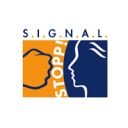
In every training activity we simultaneously use diverse contents and methods but there is agreement on some aspects that any training activity on IPV and SV should include:
– They must be interactive and oriented to the practice.
– They should start from the analysis of their current performance and meet their needs as the identification of critical points which generate difficulties for the management: ethic and legal aspects, confidentiality, resources, emotional impact, over-implication and coordination among others.
– They should have as a relevant aim the acquisition or improvement of competencies (knowledge, skills and attitudes) in order to apply them to the attention to the victim in their practice.
– The global training activity must facilitate trainees to make a critical reflection about their practice, they can express their shortcomings, difficulties, barriers and their vision of improvement possibilities.
– Feedback must be possible as well as the follow up of its applicability to the practice by means of activities like case analysis, consulting, reinforcement and support for management of problems, emotions and conflicts.
This document describes, in general terms, the sequential development of the training activity and necessary assistance tools that appear in other sections of this document. Although this example is the development of a basic face-to-face workshop, the different contents proposed could also be used in other formats (courses, modular training).
Development of a basic workshop proposal with the following steps:
1. Welcome and presentation of trainees and trainers. Organization and distribution of available time.
2. Pretest: it seems important to have an idea of the initial situation of the trainees in terms of knowledge, attitudes, expectations and motivation. This can be explored by a short questionnaire (example of initial questionnaire in section 8), which can be done online via email (example of email to trainer in section 8) or, if this is not possible, it can be done at the beginning of the face-to-face workshop following the presentation.
3. Presentation of the objectives of the workshop.
4. Set aside prejudices and misinformation: once we know the attitude of the trainees about the problem of IPV and SV. If predominant attitude is refractory or poor motivation, the first serious intervention will be to dismantle myths and prejudices interacting with the group.
Also, promoting empathy for the victims, raising awareness after the information provided about their role to face the problem using motivational interviewing and promoting intrinsic motivation.
5. Training knowledge about IPV and SV: there are a set of basic contents in any activity that should be include (TOOL 9. Section 7).
Proposed training methods:
– Interactive presentation by trainer with a support of power point with the principal knowledge (e.g. available powerpoint in the digital version)
– Selected bibliography
6. Training skill and attitudes about IPV and SV: this proposed basic workshop will tackle issues that allow improvement of skill and attitudes regarding this problem (see sections 7 and 8).
Proposed training methods:
– Role playing.
– Case presented with clinical history
– Fragment of movie. Analysis and debate.
– Audio recording victims’ account.
– Working in groups
– Interviews with expert professionals.
7. Management of emotions. During the course, trainees could show emotions toward this problem that trainers should know how to manage (TOOL: 11, 12, 14)
8. Ethical and legal aspects. Decision-making in situations of violence against women and sexual assault, face professionals with situations where ethical duties and legal obligations may sometimes enter in conflict. (TOOL 13).
Proposed training methods:
– Role playing.
– Analysis of medical history and practical cases made by doctors.
– Analysis of mandatory reports (two documents selected anonymously) (mandatory
reporting).
9. Feedback and final questionnaire: at the end the workshop a post-test will be carried out to evaluate changes, the fulfilment of the expectations, achieving goals, and suggesting ideas for improvement (Example of final questionnaire in section 8)
10. Ideas and proposal for implementation in the practice: joint proposal or working group
11. Satisfaction survey: a satisfaction survey workshop will be carried out. It will include: achievement of goals, evaluation of teachers, usefulness of the course, organizational and logistical aspects of the course, provided materials and suggestions and proposals for improvement.









